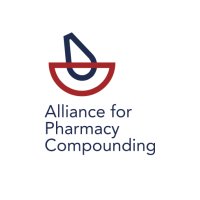FDA concedes in compounding MOU case
Posted:
March 04, 2022
Categories:
Press Release
ALEXANDRIA, VA — In a significant legal victory for pharmacy compounders, the U.S. Food & Drug Administration has conceded that it must conduct formal notice-and-comment rulemaking to implement its memorandum of understanding with states regarding interstate shipments of compounded medications. The agency concession is related to a lawsuit, Wellness Pharmacy v. Azar, brought in federal court against the agency in 2020 by seven compounding pharmacies. The Alliance for Pharmacy Compounding was party to an amicus filing in the case.
In a status report filed yesterday with the U.S. District Court for D.C., FDA said it would suspend implementation of the MOU and engage in a formal rulemaking process. The agency indicated in its filing that the process may take “several years” to complete.
FDA’s concession follows a ruling by federal judge Chris Cooper last autumn that FDA had failed to meet the requirements of the Regulatory Flexibility Act in promulgating the MOU. The judge had ordered the agency to report back to the court its plans for addressing the matter.
“We’re pleased that compounders’ concerns and arguments have prevailed in this case,” said APC President Dave Miller, managing owner of Keystone Pharmacy in Grand Rapids, Mich. “While this litigation resulted from what we view as FDA overreach, we do support the agency’s desire for reporting by compounded pharmacies that ship the majority of the medications they compound to patients in other states. Now, with this case settled, we’re committed to work with FDA and Congress to enact an effective reporting framework that meets FDA’s need for information and doesn’t threaten patients’ access to compounded medications. And I would add: We think there are ways to bring about that result that won’t take years and years to effect.”
The MOU in question was mandated by Congress a quarter century ago, in a 1997 update of the Food, Drug & Cosmetic Act. In the intervening years, three draft versions of the MOU were issued and rescinded by FDA based on stakeholder feedback. It was finalized by the agency in 2020, with an October 2021 deadline for states to sign it. In signing the MOU, states would agree to share with FDA information on compounding pharmacies based in the state that ship more than 50 percent of compounded medications out of state. In states that fail to sign the MOU, the statute would allow a compounding pharmacy to ship no more than five percent of its total compounded preparations out of state. [Access APC’s briefing paper here.]
The seven plaintiffs in the case — Medquest Pharmacy, Wellness Pharmacy, Madame Rx, Belmar Pharmacy, Hartley Medical Center Pharmacy, Womens International Pharmacy, and VLS Pharmacy — alleged that FDA had failed to follow the proper rule-making process in promulgating the MOU, including conducting a required Regulatory Flexibility Analysis to assess economic impact on states and compounding pharmacies. The judge’s 2021 ruling did not directly address plaintiffs’ claim that the agency’s MOU redefined the terms “distribute” and “dispense” in a way not foreseen by Congress in mandating the MOU, the effect of which was to include in the reporting requirement patient-specific dispensing of compounded medications — a practice traditionally regulated by state boards of pharmacy, not FDA.
In yesterday’s filing with the court, FDA said it would:
-
Consider the Standard MOU that was published on October 27, 2020, to be suspended. Thus, there is no reporting requirement for any pharmacy concerning interstate shipments pursuant to Section 503A and will not be until the MOU is finalized through the rulemaking process.
-
Engage in notice-and-comment rulemaking to implement certain provisions of Section 503A.
-
Prepare a Notice of Proposed Rulemaking (NPRM) that will set out definitions applicable to both the provisions of § 353a(b)(3)(B)(i) (the “Standard MOU”)) and § 353a(b)(3)(B)(ii) (the five percent limit) and may codify provisions of the MOU. The rulemaking will also include other provisions related to the five percent limit applicable to drugs compounded in states that do not sign the MOU.
-
Extend enforcement discretion on the five percent statutory cap on shipments for the duration of the rulemaking process and publish an announcement in the Federal Register before the current term of enforcement discretion expires.



